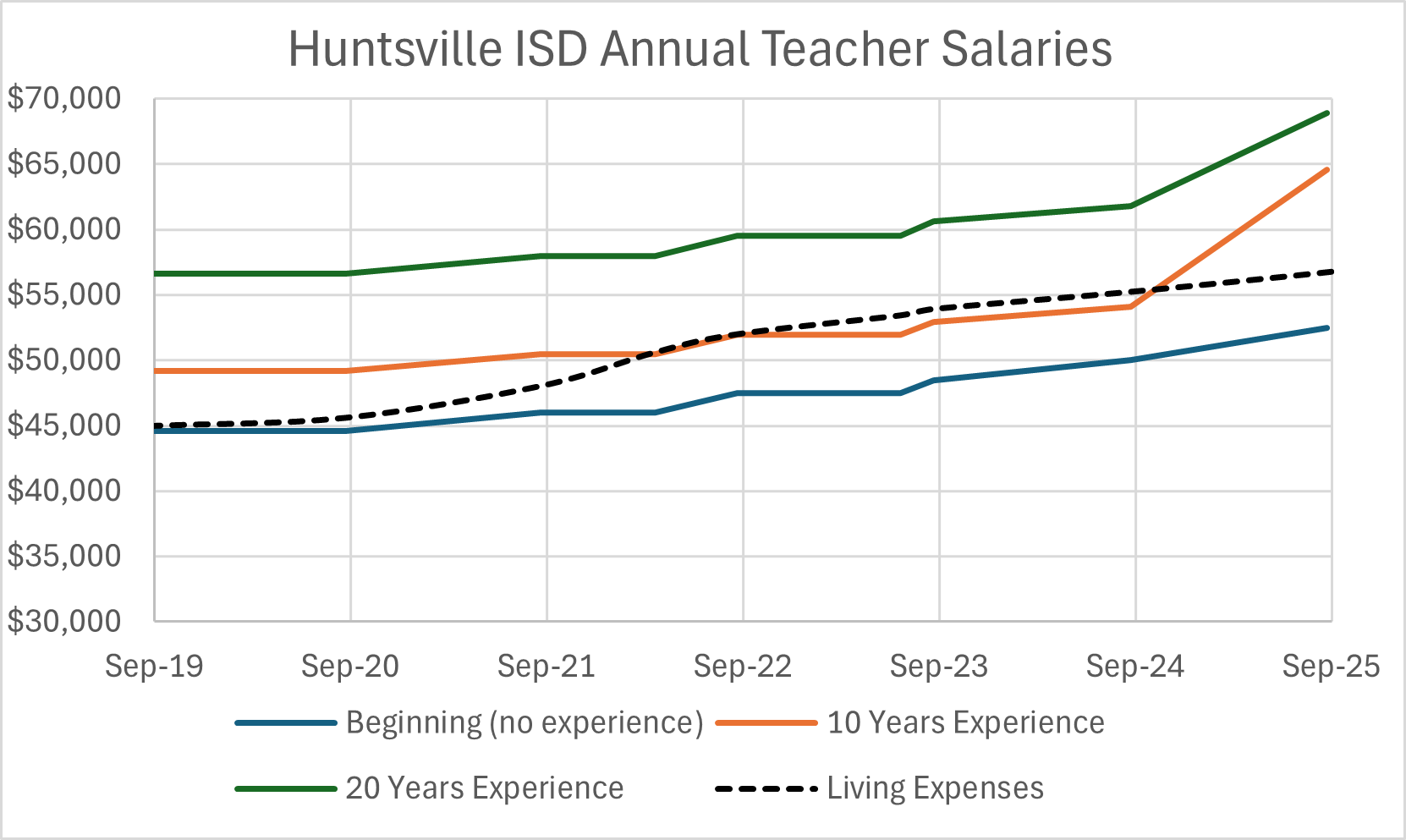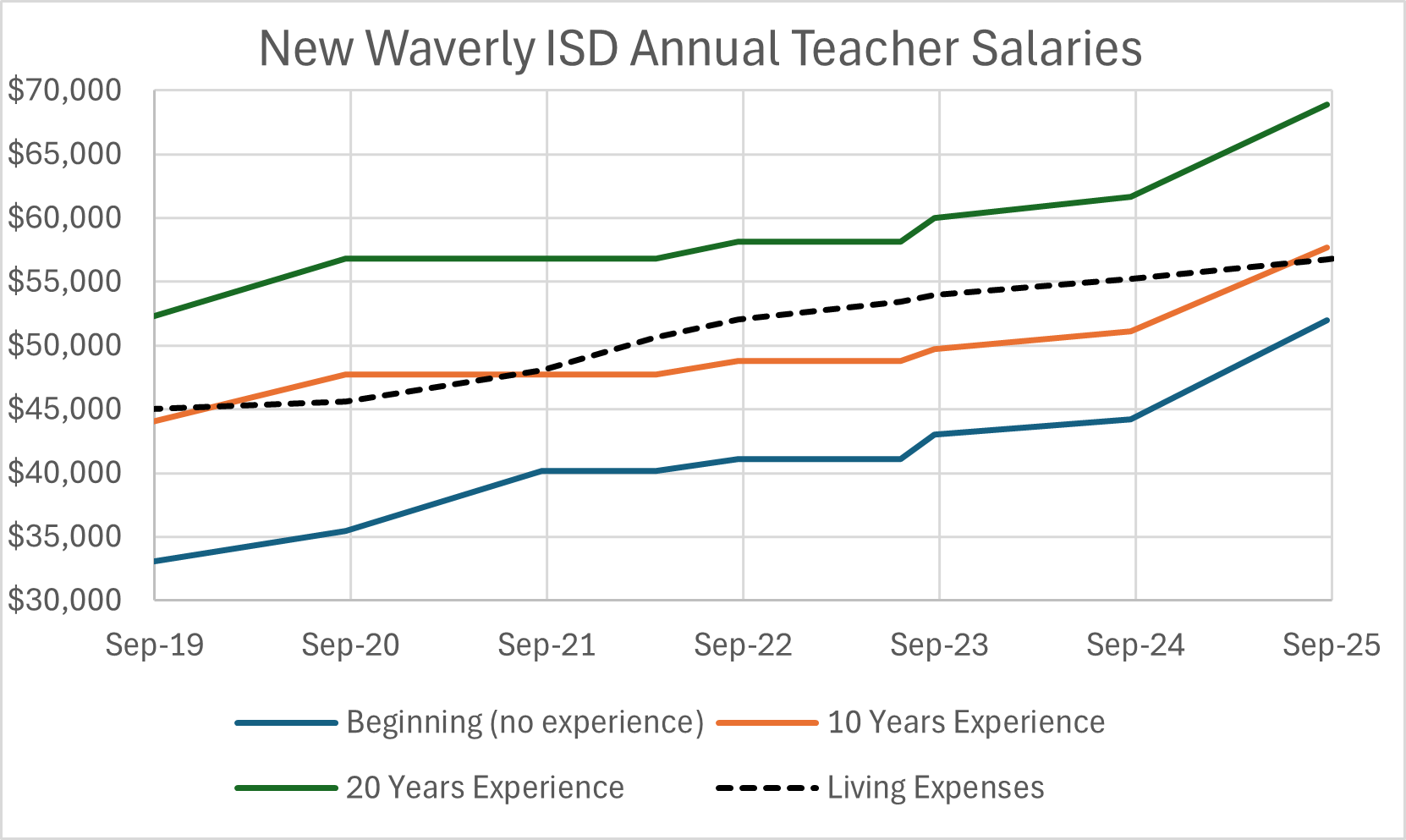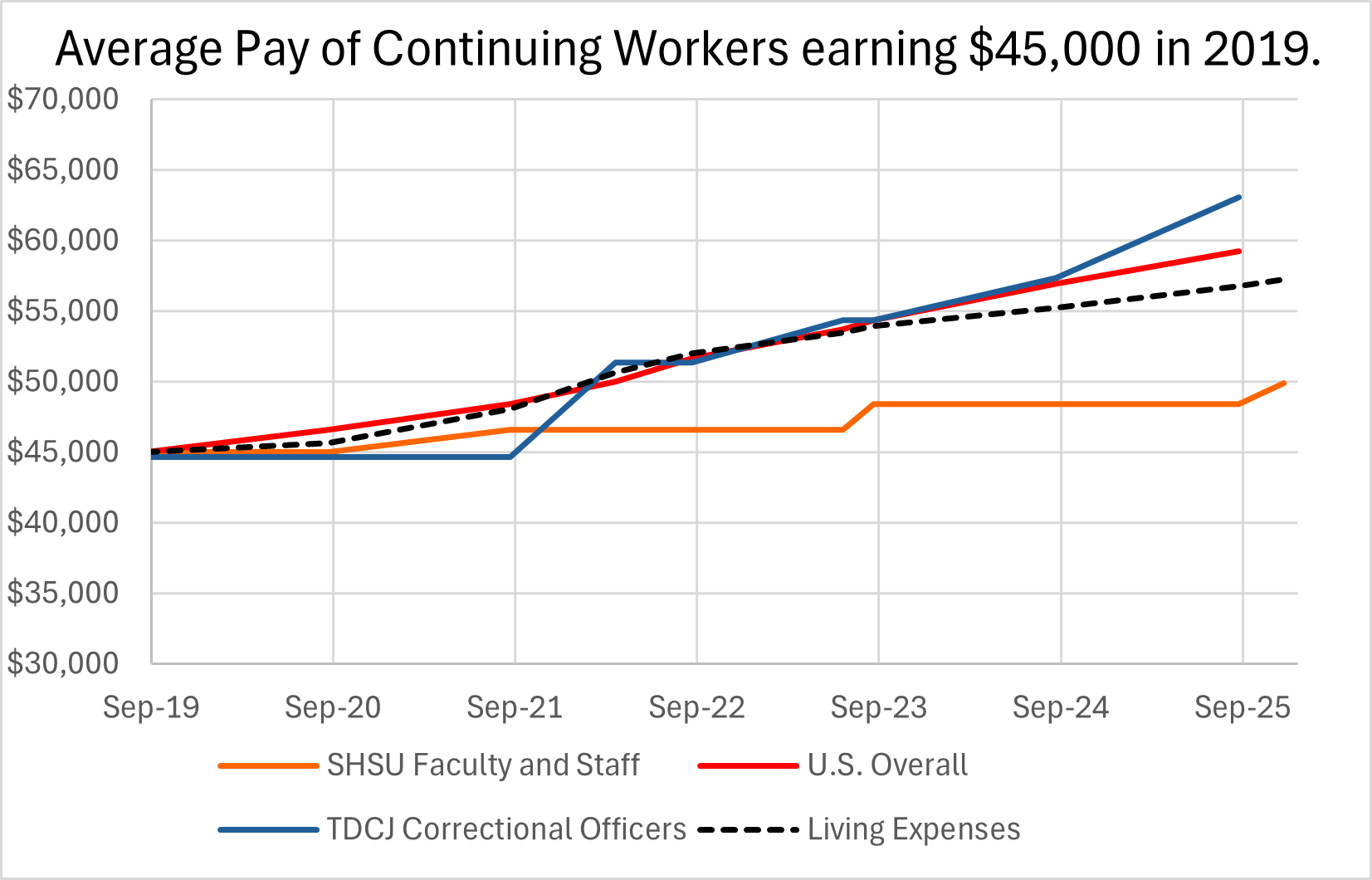Has local pay caught up with inflation?
Some local workers have made out much better than others.

After Covid infected our lungs, it ravaged our finances. In 2021 and 2022, people were ready to spend all that money they saved up during the pandemic. That ran up against supply chain problems, and the result was the highest inflation in decades. From mid-2021 to mid-2022, prices nationwide increased by an average of almost 10%.
The only way to keep up with higher prices is higher pay. And here in Walker County, we can keep up with people's pay because there are so many government jobs, where pay is public. The schools and prisons post their pay schedules online, while SHSU announces a "merit pool" in years with a raise.
We started with hypothetical living expenses of $45,000 in 2019, and let them grow at the rate of inflation. By 2025, higher prices made those same living expenses cost $56,765. Then we determined the pay in key local jobs over the last six years and compared it to these living expenses.
The results really differ. Some local workers are way ahead of where they were before the pandemic, some have just kept up, and some are way behind. It depends on who you work for.
The Public Schools
Both the Huntsville ISD and New Waverly ISD lost ground relative to inflation in years after the pandemic. From 2020 to 2023, pay barely rose in both districts while prices rose a lot.
But the last two years have really helped. After years of stagnant funding, the 2025 Texas legislature poured more money into the schools, especially for smaller districts and experienced teachers. In the HISD, this brought experienced teachers a little ahead of where they were in 2019. But beginning teachers are still behind. Taking inflation into account, they can't afford what they could have in 2019.

For New Waverly, teachers at all experience levels came out ahead. As a smaller district, they received more money from the state that was passed on in raises. For a long time, Huntsville ISD paid teachers much more than New Waverly ISD. That gap has really narrowed.

Overall, after a few lean years, our public schoolteachers are doing pretty well.
SHSU and the Prisons
Sam Houston State University doesn't have a salary schedule. Instead, it announces a "merit pool" – roughly the average percentage raise for workers remaining in their jobs and gaining experience, but not getting a promotion.
We took someone there who always got the average raise from the merit pool and made $45,000 in 2019, the same as an experienced correctional officer in the Texas Department of Criminal Justice and as our living expenses. Now it's a horse race to see which grows faster.

And we have a winner – correctional officers. In 2021 and 2022, they lost some ground to inflation, just like workers nationwide. But they have gained it back since and then some. The TDCJ has given raises each year since 2022, for a total increase of 40%.
A TDCJ recruiter recently told The Huntsvillan that people are shocked when they see what the pay is now – about $63,000 with experience. That is competitive with schoolteachers.
That leaves only one public employer to lose ground to inflation – SHSU. Since Sept. 2019, its merit pay pools have totaled only 8%, with another 3% promised later this year. Over that period prices have gone up 26%, putting workers behind by about 15%. That worker breaking even in 2019 is now more than $8,000 behind living expenses, which have grown to $56,765.
In the end, things played out how they usually do. It took time for things to work out. For most government employees in Walker County, they ended up working out to their advantage, after some belt-tightening in the years after Covid.